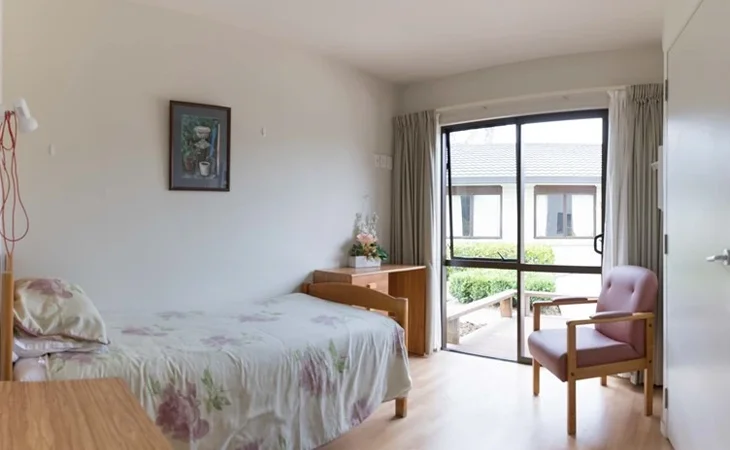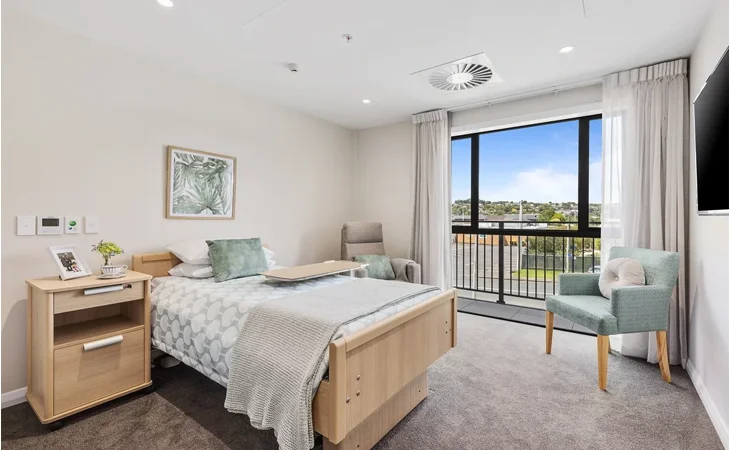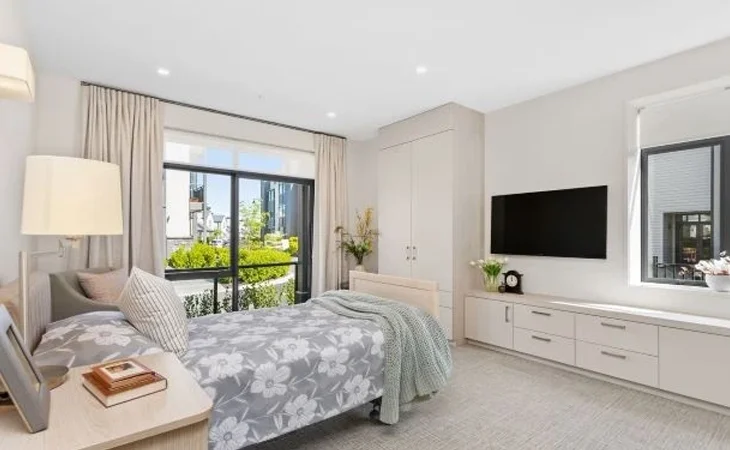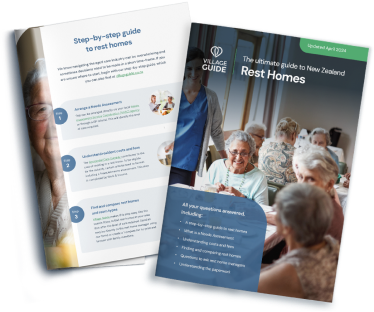Rest home care in New Zealand
What is rest home care?
Rest home care is for older adults who can no longer manage independently at home. It provides support with everyday tasks like:
Care is provided by trained caregivers, with oversight from registered nurses. Rest home care is the lowest level of care within a residential aged care setting.
Who is eligible for rest home care?
To access rest home care in New Zealand, your family member must first undergo a needs assessment. This is a formal process carried out by a trained professional who is approved by Health New Zealand - Te Whatu Ora.
The purpose of the assessment is to determine whether your loved one meets the criteria for entry into rest home level care, and to help identify the kind of support they need.

What can a resident expect?
Daily support
Care staff are available 24/7 to help with personal care. A registered nurse is always either on-site or on-call. Medication and minor health needs are managed onsite, with GPs visiting regularly.
Meals and Nutrition
All meals and snacks are provided. Meals are designed to suit the nutritional needs of older adults, and most rest homes can accommodate special diets.
Activities and social life
Each home has its own routine and activity programme. Residents may enjoy music, crafts, games, guest visits, and outings.
Healthcare & monitoring
GPs visit regularly, and care staff monitor residents' health. If a resident becomes unwell or needs hospital care, the team will coordinate support, including transport and communication with the family.
Find the right rest home for your family
What does rest home care cost?
The government sets a maximum weekly fee, which currently ranges from $1,399.16 to $1,511.09, depending on the region.
Includes
- Accommodation
- Meals
- Cleaning and laundry
- Basic nursing care and GP visits
- All prescribed medications costs
- Social activities
Excludes
Who covers the cost of care?
The resident will need to cover the cost of the care unless they qualify for financial help which is known as the residential care subsidy. This is funded by Health New Zealand Te Whatu Ora and managed with the Ministry of Social Development.
Types of rooms available

Standard Rooms
Every rest home is different, but standard rooms are usually single rooms with space for a single bed and a few small items of personal furniture, such as an armchair and a television. The Residential Care Subsidy is available for standard rooms if the resident is eligible for funding.

Premium Rooms
A premium room is a room that has features that are not required under the Age-Related Residential Care Agreement, that is, anything over and above the standard features and services. Common examples of premium features include an ensuite, more space, or garden/ courtyard access. The Residential Care Subsidy will cover up to the cost of standard room fees, but residents will need to pay the additional premium room fees.

Care Suites
These are self contained apartments within a care facility or retirement village. Care suites usually come under an Occupation Right Agreement and may require a lump sum upfront. Some care suites may offer a premium room charge as an alternative to the occupation right agreement.
How to choose the right rest home
Levels of care
Ask whether your family member can remain in the same home as their care needs evolve, or if they would be required to move should their needs change and a higher level of care be needed.
Staffing
Ask about staffing ratios, especially in evenings and weekends. Is there always a nurse on site? How are emergencies handled?
Facilities
Visit the home if possible. Are rooms tidy and comfortable?
Is there a garden or
utdoor space?
Activities
Ask to see a sample activities calendar. Are there outings or special events? Is there a dedicated activities coordinator? Are faith or cultural activities supported if this is important to you?

Log in to Village Guide
Save villages to your favourites and update your preferences
For village managers, operators and admin
Log in to Village Guide
Sign up to Village Guide
Reset your password
View your Saved list
You can request an Information Pack for multiple villages by adding them to your Saved List. When ready, complete the form within your account area.